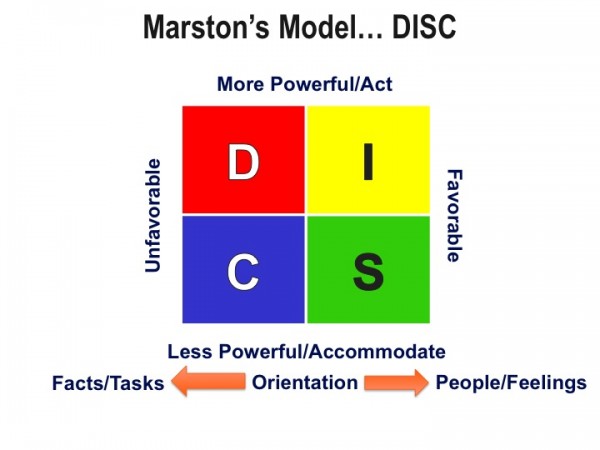Huntsville, AL – Byron Headrick, President and Co-Founder of LEAN Frog Business Solutions, Inc., addressed Class 16 of the “CONNECT Young Professionals” from LEADERSHIP Huntsville/Madison County on Thursday, December 12, 2013, at Randolph School. As part of a full day of exposure to Education in Madison County and Professional Development, this presentation — hosted by Cassie Scott, Program Director — focused on providing an understanding of workplace behavioral styles, how to identify your most used style, how to identify others most used style, and how to effectively use this knowledge to improve working in teams. Byron’s presentation, based upon the DISC Theory developed by William Moulton Marston, was entitled “Let’s talk about the I in Teams”. During his remarks, he explained and encouraged the audience to first define their own behavior according to DISC, and then define the behavior of those with whom they interact. His presentation elicited many questions, revelations, and comments from the group!
Based upon his study and usage of DISC, Byron defines individuals as:
- D = tough; competitive; independent; strong-willed (Examples: General Patton, Captain Kirk, Hillary Clinton)
- I = social; talkative; enthusiastic; encouraging (Examples: Robin Williams, Bill Clinton, Dr. McCoy)
- S = calm; trustworthy; family-oriented; good listener (Examples: Gandhi, Princess Diana, Mother Teresa, Mr. Sulu)
- C = precise; disciplined; formal; rule-followers (Examples: Einstein, Al Gore, Mr. Spock, Jack Nicholas)
It is important to note that The DISC model is a tool for observing and analyzing behavior – not analyzing an individual’s personality. The model does not classify people as good or bad, nor measures intelligence. It does not measure knowledge or skills. None of the behavioral styles is better or worse than another.
 Byron acknowledged that evaluating both himself and others has been a powerful tool in both the growth of his company and the expansion of his vision to use LEAN Six Sigma tool sets in non-traditional organizations such as public school systems. By understanding behavioral styles and adapting approaches to communication, information is shared more accurately and team dynamics can easily bridge the Forming and Storming stages and move quickly to Norming and Performing.
Byron acknowledged that evaluating both himself and others has been a powerful tool in both the growth of his company and the expansion of his vision to use LEAN Six Sigma tool sets in non-traditional organizations such as public school systems. By understanding behavioral styles and adapting approaches to communication, information is shared more accurately and team dynamics can easily bridge the Forming and Storming stages and move quickly to Norming and Performing.
For more information about LEADERSHIP Huntsville/Madison County, go HERE!
Headquartered in Huntsville, AL, LEAN Frog’s mission is to help public schools succeed through increasing the value they deliver to students, parents and communities while fully engaging employees, reducing costs, and building a spirit of continuous improvement.